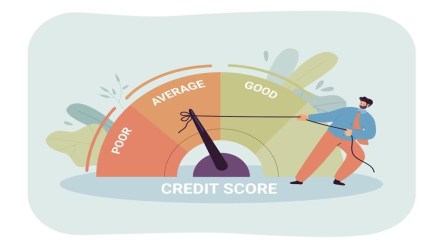When it comes to taking a loan, most people focus on one thing the most – credit score. It has become a common belief that if your score is good, then getting a loan is certain. But the truth is much more complex than this. Banks and financial institutions closely examine not just your score but your entire financial profile before approving a loan.
How stable your job is determines your trustworthiness
According to Amit Bansal, Founder, BharatLoan, “Most borrowers focus heavily on their credit score, assuming it’s the primary deciding factor for loan approval. While it’s important, it’s far from the only thing lenders evaluate.”
Most people taking loans think that only a good credit score is enough to get a loan approved, but banks look at many other important things as well. The biggest of them is the stability of income. If you have changed jobs frequently or your income is from freelance or unstable sources, loan approval may be a problem, even if your credit score is decent.
FOIR: The real test of your EMI capacity
Another crucial factor in the loan approval process is FOIR i.e. Fixed Obligation to Income Ratio. This helps banks understand how much of your monthly income is already going into installments.
Amit Bansal explains, “Another crucial factor is your fixed obligations-to-income ratio (FOIR), which reflects how much of your income is already tied up in existing EMIs or other obligations. A low FOIR usually signals healthy financial management and a greater ability to repay.”
That is, if a large part of your income is already going into EMIs of other loans, then approval of a new loan may be difficult, even if your score is good.
Timely payments and past behaviour are also important
The CIBIL score is just a number, but banks also give a lot of importance to your past repayment behaviour. They look at how you have paid off loans or credit cards in the past. A person who has never defaulted, even if his score is slightly lower, may be considered better than a person whose score is high but payment behaviour has been unstable.
As Bansal explained, “Repayment behaviour is also closely reviewed. Timely payments, consistency and how you’ve handled credit in the past, even if not in default, can speak volumes about your reliability.”
Taking a loan for the first time? Now banks look for something new
First-time loan borrowers often do not have any past credit history. In such a situation, banks now try to understand your financial habits with the help of alternative data sources.
Bansal says, “Lenders are also increasingly turning to alternate data sources, especially for first-time borrowers. Rent payment records, utility bills and transaction patterns offer a broader view of financial discipline.”
This means that now rent receipts, electricity and water bills and bank account transaction behaviour have also become a part of your financial profile.
The real formula for loan approval
Overall, banks and NBFCs do not rely on just one thing. CIBIL score is an important parameter, but more important than that is financial stability, responsible behaviour and future payment capacity.
Bansal says, “Ultimately, approval is based on a combination of factors, not just a number. Lenders are looking for stability, predictability and signs of responsible financial behaviour over time.”
Conclusion: Along with credit score, the entire profile should also be strong
If you want to take a loan, then just having a good CIBIL score is not enough. Job stability, EMI burden, timely payment habit and your overall financial understanding – all these together decide whether the loan will be approved or not. Therefore, it is important to strengthen your entire financial profile before applying for a loan.
